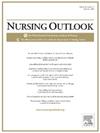Health equity and e-cigarette use among young adults in rural areas: A social determinants of health framework
IF 4.1
2区 医学
Q1 NURSING
引用次数: 0
Abstract
Young adults (YAs) aged 18 to 24 in rural areas are increasingly using Electronic Nicotine Delivery Systems (ENDS), commonly known as e-cigarettes, in the United States. Rural communities already face significant health disparities due to higher tobacco use, contributing to worse health outcomes, including increased mortality from heart disease, cancer, and respiratory diseases. Using the adapted World Health Organization’s Social Determinants of Health framework, this paper examines how structural and intermediary determinants shape ENDS use among rural YAs. Special attention is given to how policy and societal contexts, sociocultural norms, and rurality influence rural ENDS use. The paper also highlights intermediary factors like the availability of cessation resources and the role of psychosocial stressors in ENDS use behaviors. Nurses can play a vital role in addressing ENDS-related health inequities by providing culturally congruent and environmentally relevant care and advocating for intersectoral policies that promote health equity. This framework informs targeted public health interventions and nursing efforts to reduce the health disparities associated with ENDS use in rural communities.
求助全文
约1分钟内获得全文
求助全文
来源期刊

Nursing Outlook
医学-护理
CiteScore
6.20
自引率
7.00%
发文量
109
审稿时长
25 days
期刊介绍:
Nursing Outlook, a bimonthly journal, provides innovative ideas for nursing leaders through peer-reviewed articles and timely reports. Each issue examines current issues and trends in nursing practice, education, and research, offering progressive solutions to the challenges facing the profession. Nursing Outlook is the official journal of the American Academy of Nursing and the Council for the Advancement of Nursing Science and supports their mission to serve the public and the nursing profession by advancing health policy and practice through the generation, synthesis, and dissemination of nursing knowledge. The journal is included in MEDLINE, CINAHL and the Journal Citation Reports published by Clarivate Analytics.
 求助内容:
求助内容: 应助结果提醒方式:
应助结果提醒方式:


